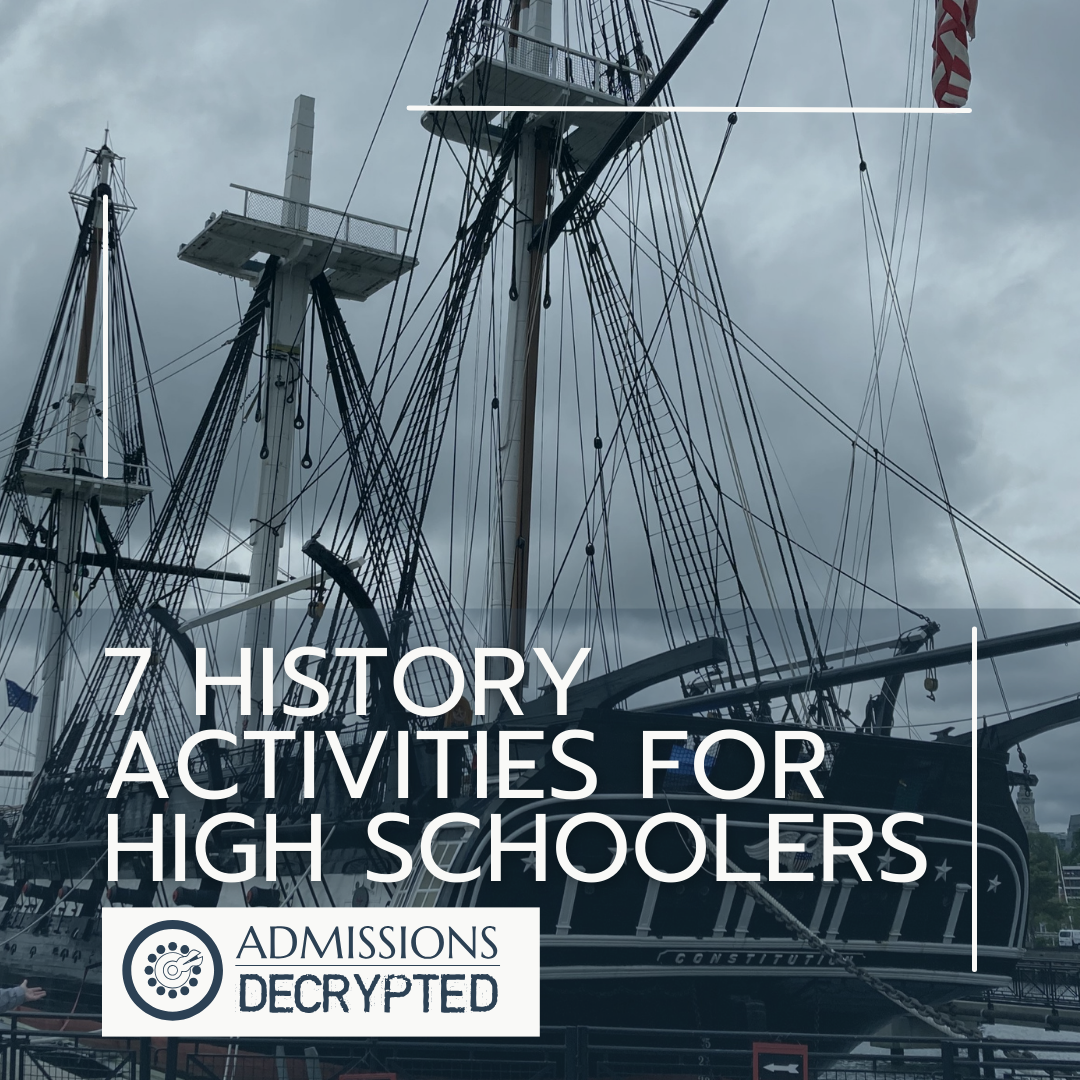posts filed in:
College Admissions
Read More
If you’re finishing junior year, use the summer to get a head start on college applications. With steady work over the next few months, you could be ready to submit applications shortly after they open in August, well before early application deadlines. Here’s what to work on before school ends and during the summer. Before […]
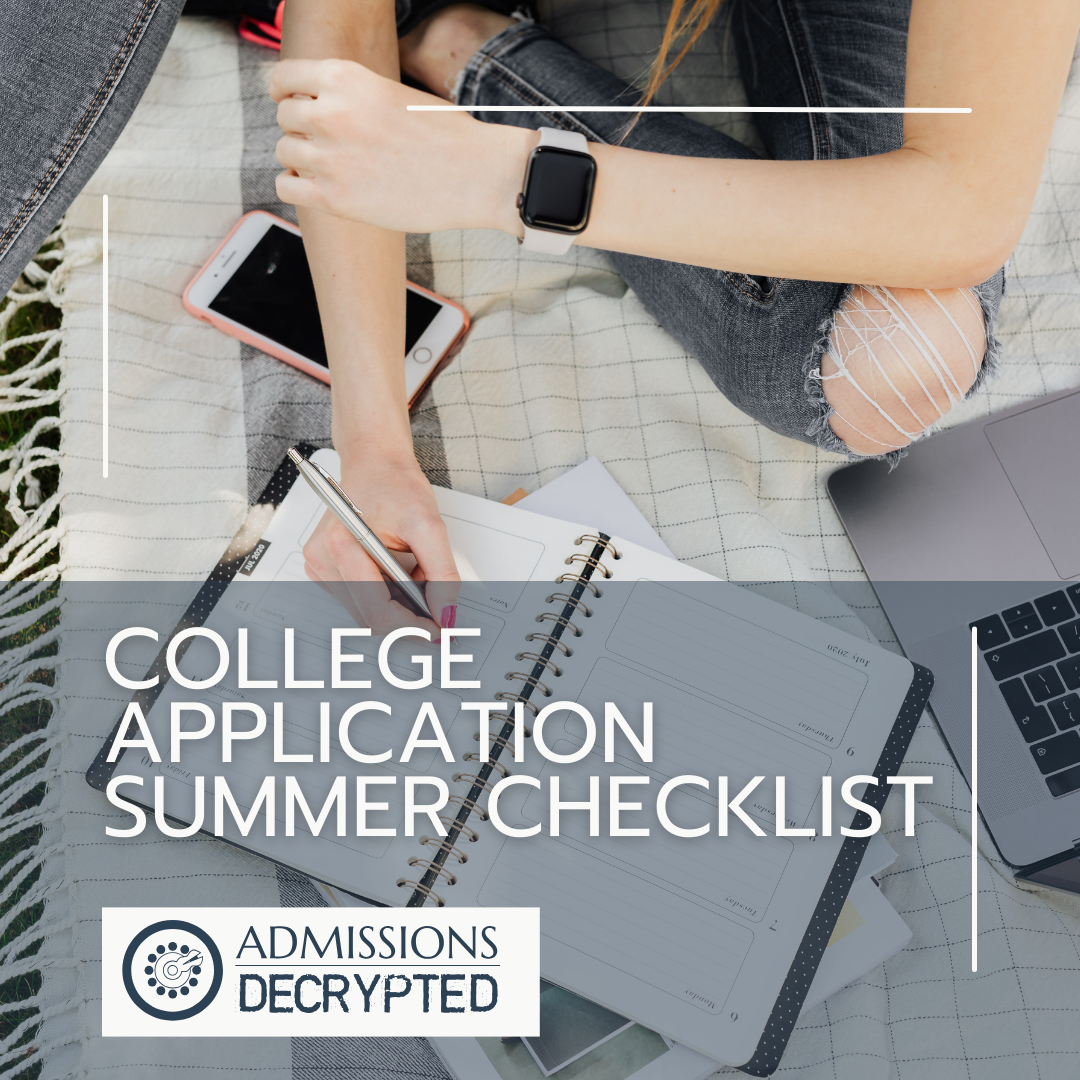
Read More
Every spring, well-qualified students get turn down letters from colleges they’d hoped to attend. College admissions results are not a measure of how worthy a student is as a person or a strong predictor of their adult success. In spite of what some media outlets and popular colleges want you to believe, studies show that […]

Read More
The Common App essay prompts remain the same for 2025-26 as in the past couple years. These essay prompts aren’t a list of questions to answer. They are designed to help you think about what’s important to you, who you are as a person, and what you would bring to campus as a college student. […]
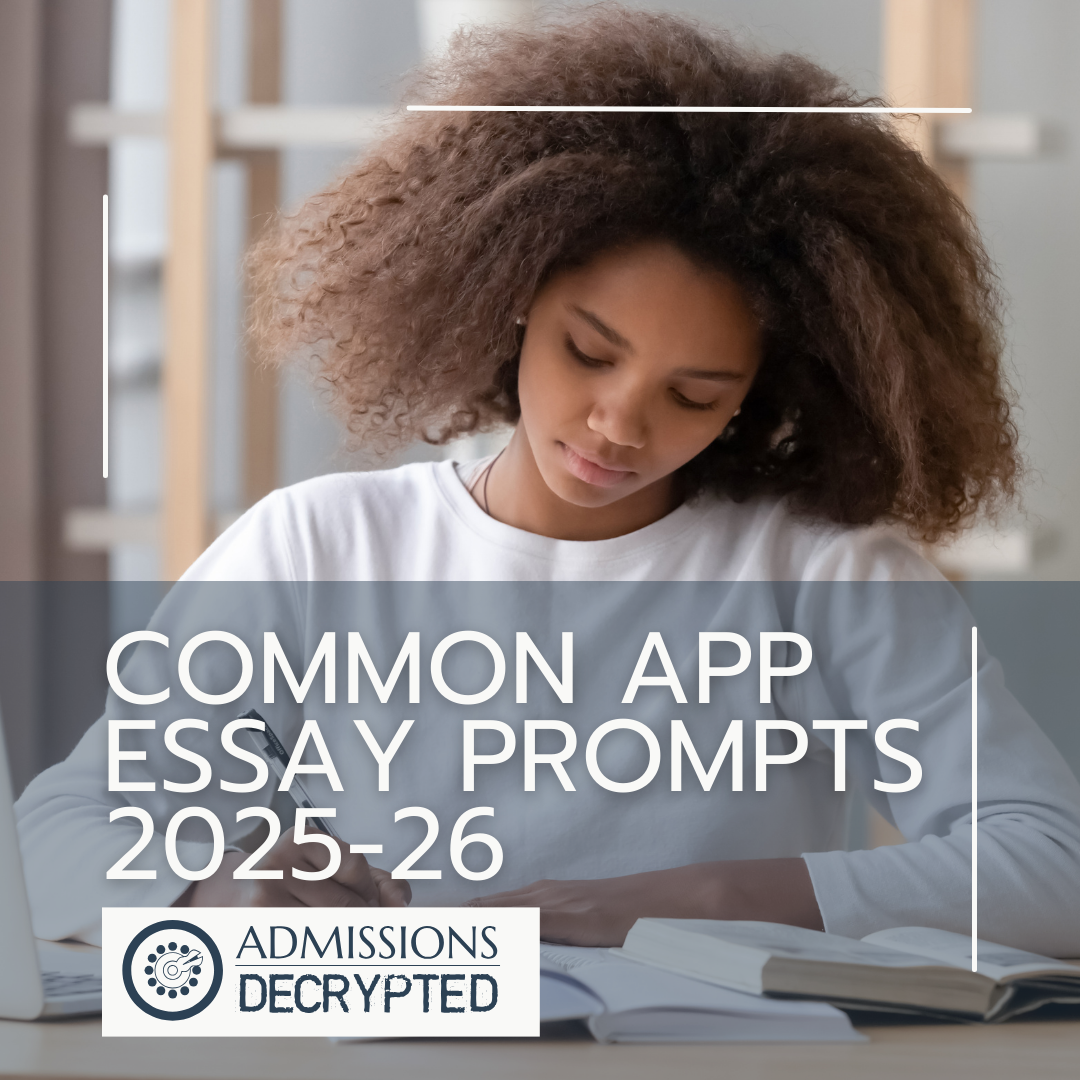
Read More
Some colleges have returned to requiring test scores for admission. Even at test optional colleges, strong scores can improve your application. Generally colleges will accept the SAT and ACT on an equal basis, converting scores from one format to another. This means students can take practice tests, then register for the format they prefer. Changes […]
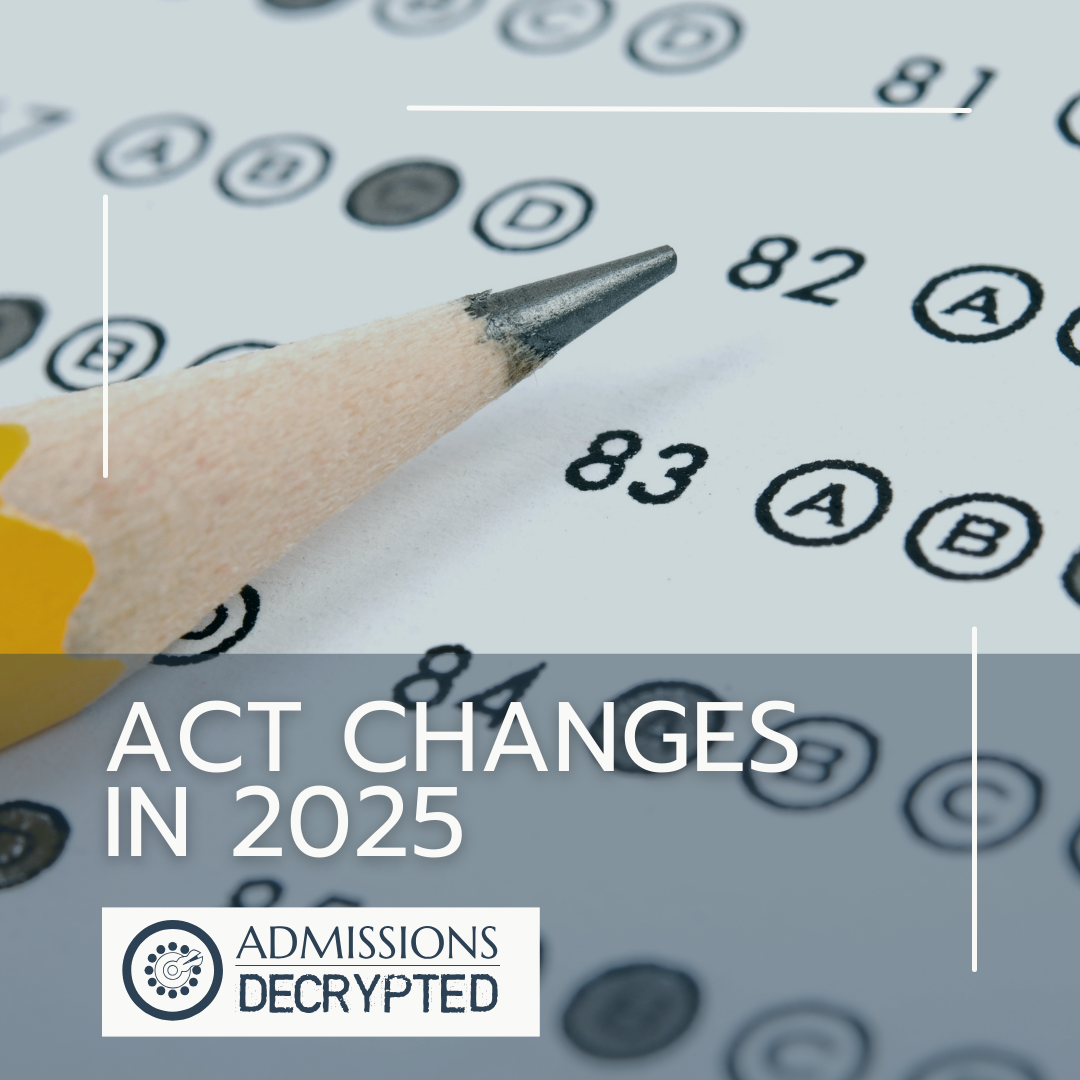
Read More
BLUF (Bottom Line Up Front) – Don’t fall for the trap, test scores still matter for college admissions. Even though the majority of colleges accept applications without test scores, having strong scores can still benefit students — especially at selective colleges. Don’t miss the table at the end that lays out several possible situations with […]
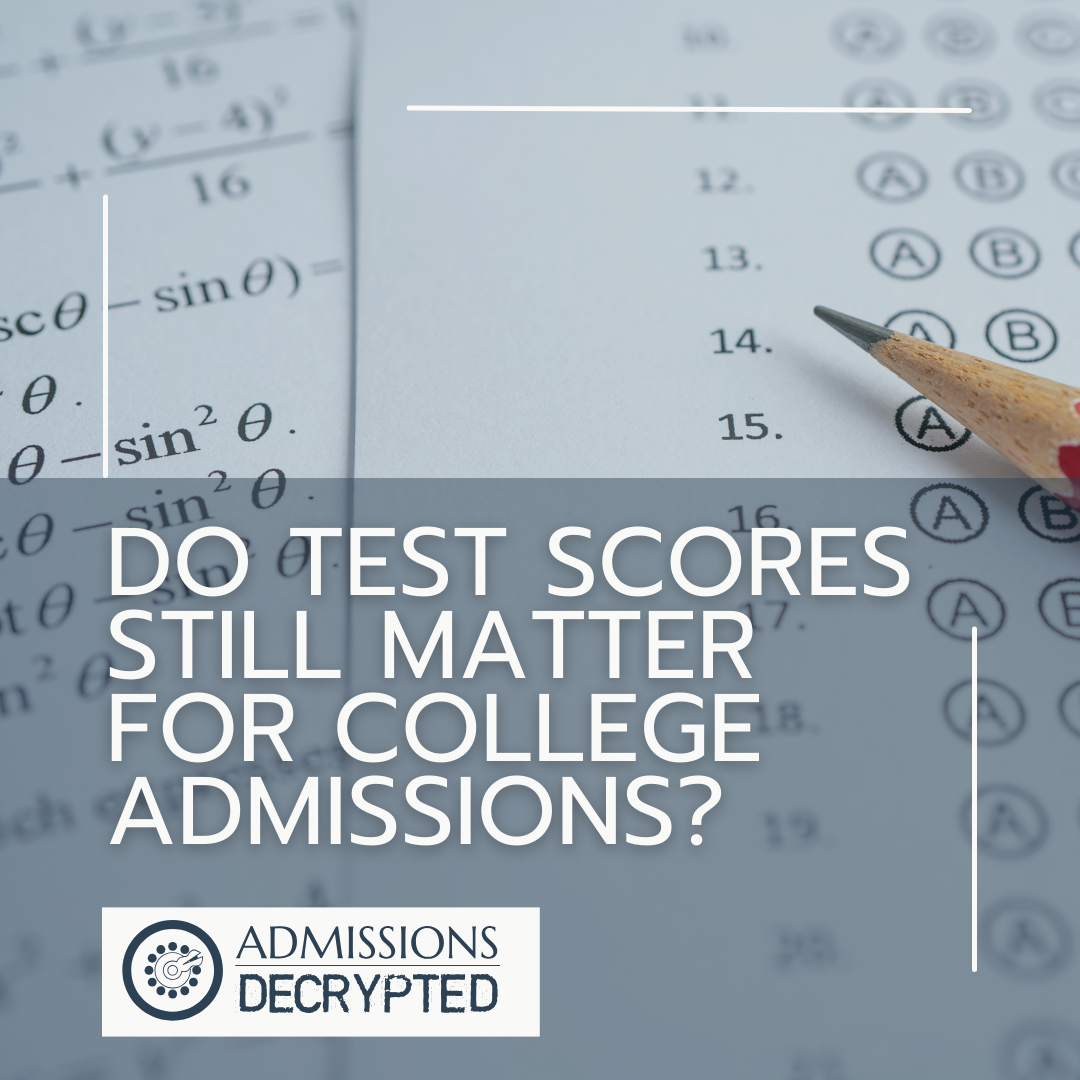
Read More
Many colleges require supplemental essays in addition to a long personal statement about the student. These additional essays are intended to give admissions more information about the student and what is important to them. One type of supplemental essay that frequently stumps students is the Why Us? college essay. Let’s consider what these prompts are […]

Read More
When students apply to colleges, they may have to choose between Early Decision, Early Action, or Regular Decision. Other options include Rolling Decision and Restrictive Early Action? What is Early Decision and how is it different from other options? Is Early Decision a good choice for you? Let me explain what these options mean and […]

Read More
These are the biggest college admissions trends I noticed during the 2022-23 admissions cycle. Families of this year’s seniors and younger high school students should be aware of these trends, so they can make wise decisions as they apply to college. Note, I wrote this in April 2023, before the SCOTUS decision on the use […]

Read More
When public and private high school students apply to college, their school counselors submit documents to support their application. Homeschool students also need to give admissions an academic history to base their admissions decision on. In addition to the applications the student fills out, there are several supporting documents for homeschool college applications that are […]
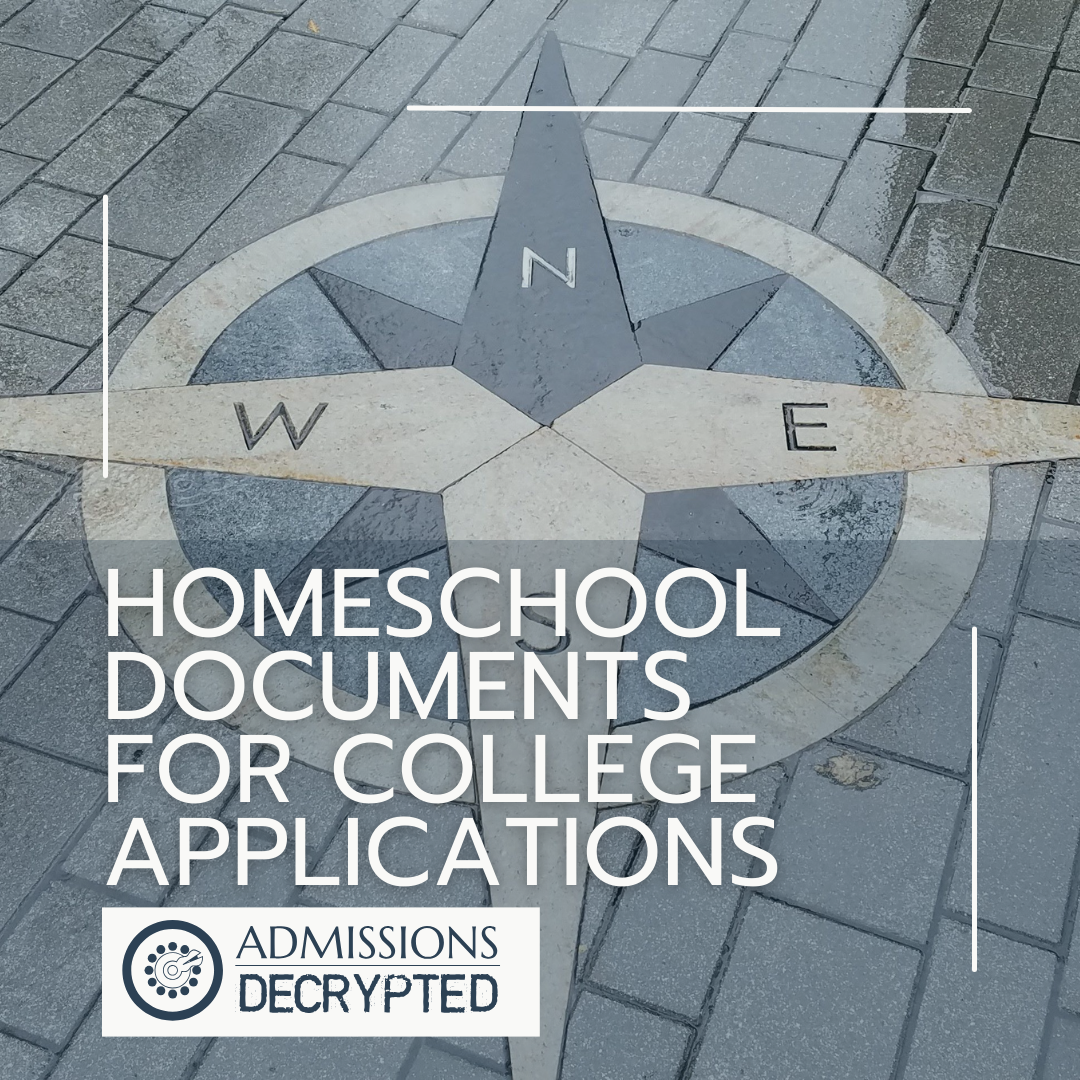
Read More
Extracurricular activities are anything a student does outside the classroom. These might include school clubs, work, volunteering, or hobbies. Activities give students a chance to explore interests, demonstrate leadership, and be a force for positive change. History related activities can help students show they have experience with research, analysis, and presentation that they might use […]
